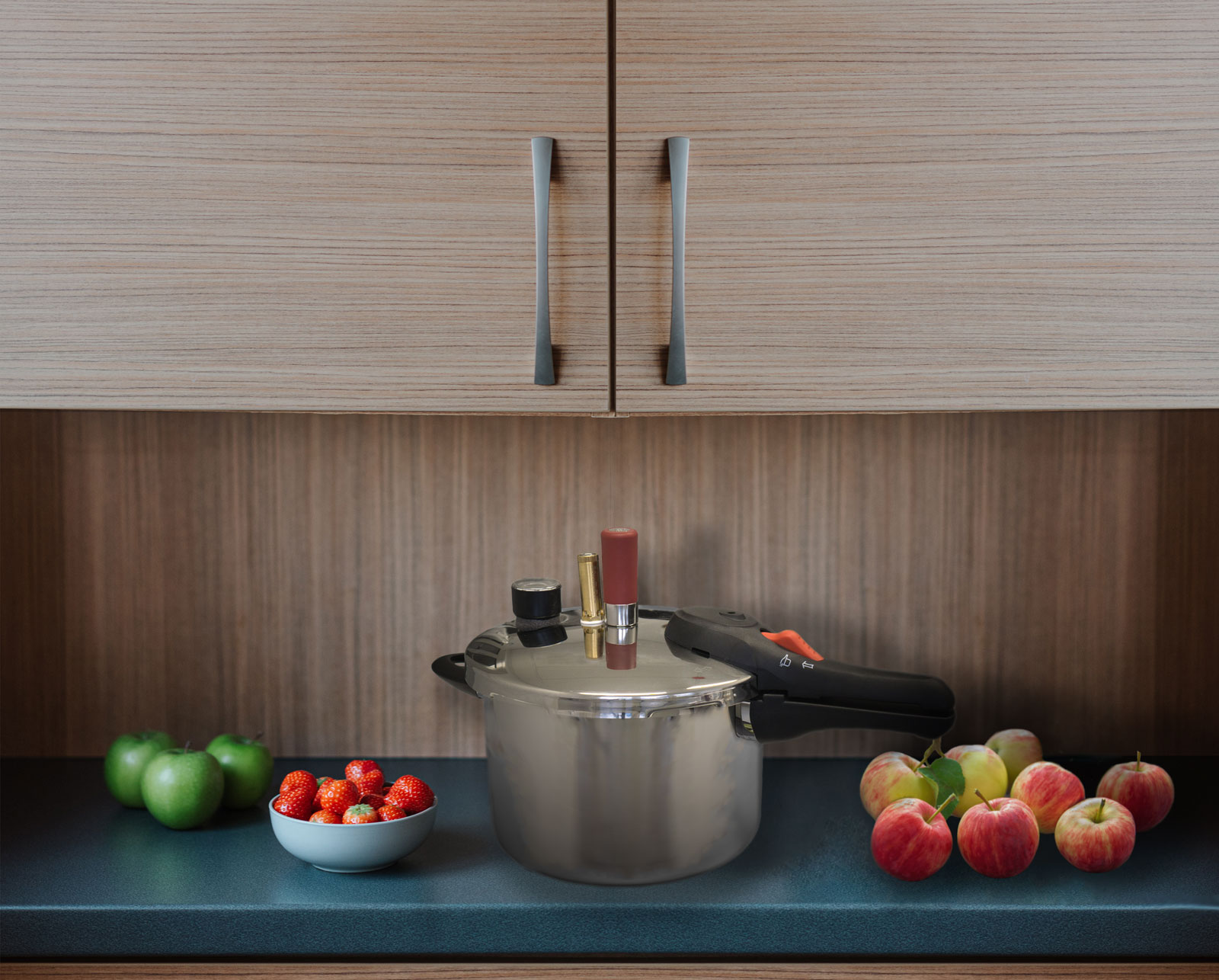New technology can prevent fruit and vegetable allergies

In Germany and the Netherlands, 6 percent of the population suffers from food allergies, 50 percent of which are allergic to fruit. This can cause annoying to serious symptoms such as stomach cramps, skin irritation or a feeling of tightness in the chest. The Dutch company Smart Material Printing (SMP) of founder, inventor and GIQS member Dr Gregor Luthe has developed a method of processing fruit and vegetables in such a way that fewer allergic reactions occur when they are touched or consumed. In a collaborative project, two prototypes have now been developed for a household appliance based on pressure cookers fitted with CO2 cartridges. The devices differ in their safety valves and pressure release types.
The Enschede-based company SMP carried out the “AllerGoFree” project as part of the INTERREG V A project FOOD2020 – in cooperation with the German dermatologists Petri/Möcklinghoff from Ahaus and the metal and machine manufacturer TM Bolz GmbH from Gronau. As part of FOOD2020, Dutch and German companies work together on innovations in food technology. GIQS is a regional partner of the programme, which is led by the German Institute of Food Technologies (DIL) from Quakenbrück. Chemist and toxicologist Gregor Luthe is certain: “Without FOOD2020, AllerGoFree would not have existed.”
Accidental discovery
Originally, Luthe was working on a method to make fruits sweeter, thus reducing the use of added sugar. “We accidentally discovered that using gases not only made the fruit sweeter, but also caused fewer allergic reactions. The discovery occurred at a child’s birthday party. One of the children present has a strawberry allergy, but we didn’t know that. The child ate many of the strawberries we had ‘processed’, but showed no symptoms afterwards! We built on this discovery. Enriching fruit with gaseous carbon dioxide and the chemical reaction this triggers makes allergens disappear. Test subjects who had not eaten an apple for more than ten years were able to enjoy fruit again without worries.” Besides apples, Luthe has also successfully tested strawberries and carrots.
Luthe: “With financial support from FOOD2020, we were able to conduct clinical trials in collaboration with dermatologist Dr Maximilian Petri. The DIL has also supported us in project activities and product development. We have applied for a patent for this technology. Without the support of FOOD2020, this would not have been possible.” Luthe is also enthusiastic about the support from GIQS: “The GIQS team supported us very well!” After completing the project, Gregor Luthe would like to bring his invention to the market: “The big challenge is to find funding for further research, for prototypes, the production of the devices, marketing, etc.. We have already put together a team and are ready to go!”
FOOD2020 is implemented within the INTERREG programme Deutschland-Nederland and is co-financed by the European Union, the Ministerium für Wirtschaft, Innovation, Digitalisierung und Energie of North Rhine-Westphalia, the Ministerium für Bundes- und Europaangelegenheiten und Regionale Entwicklung of Lower Saxony, the Dutch Ministerie van Economische Zaken en Klimaat and the provinces of Drenthe, Fryslân, Gelderland, Groningen, Limburg, Noord-Brabant and Overijssel. It is supported by the programme management of the Ems Dollart Region. Leadpartner is the German Institute of Food Technology e.V. (DIL) in Quakenbrück.


